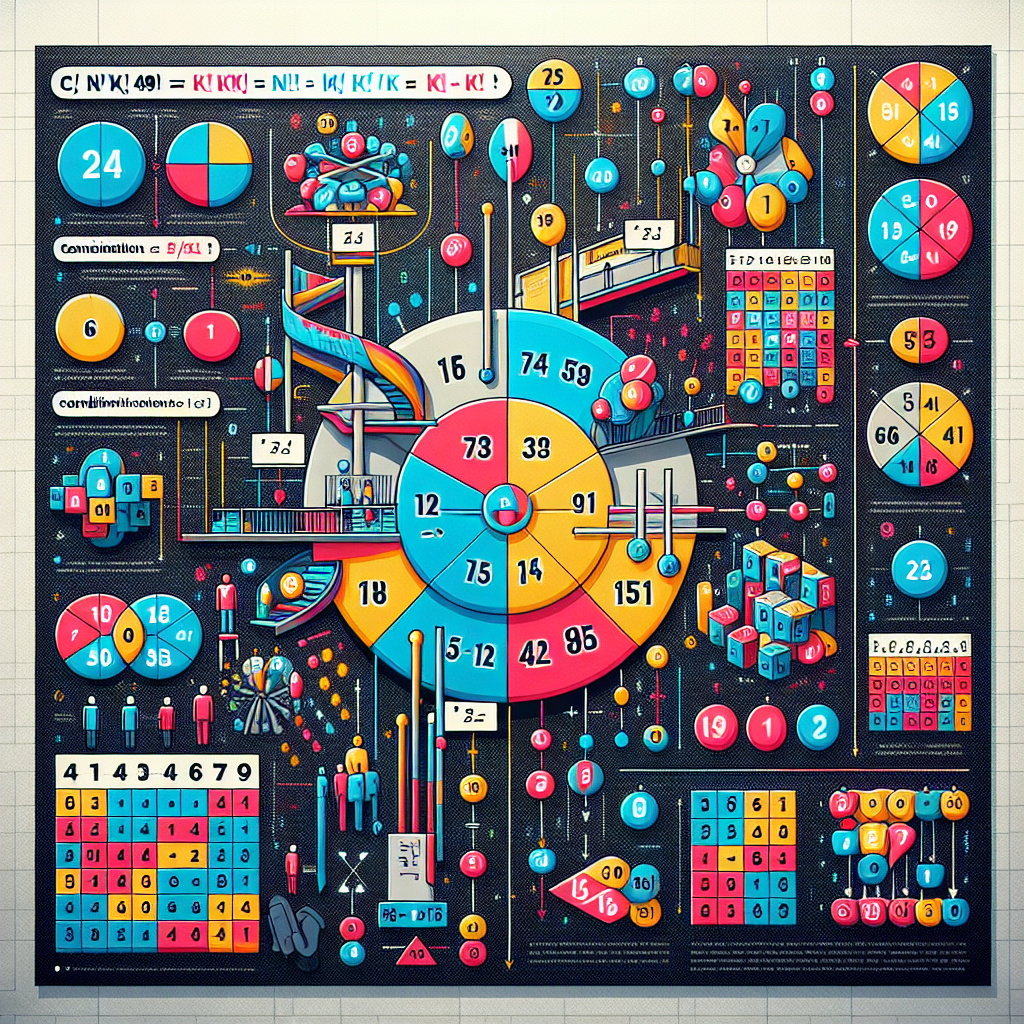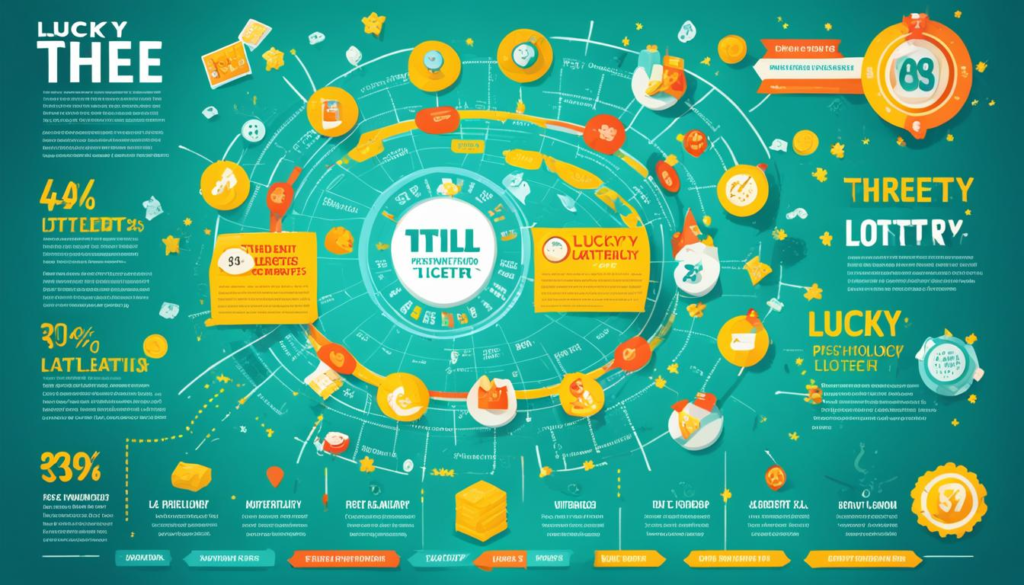The dream of winning the lottery is a tantalizing prospect that captivates millions of people worldwide. The idea of transforming a modest investment into a life-changing fortune is incredibly appealing, yet the odds of achieving such a feat can be overwhelmingly small. To understand why the chances are so slim and how to approach lottery games strategically, it’s essential to delve into the mathematics of combinations. This article explores the concept of combinations in lottery games, providing insights into the calculations behind the odds and offering practical tips to enhance your chances of winning.
Understanding Lottery Combinations
Lottery games typically involve selecting a set of numbers from a larger pool. For example, in a 6/49 lottery, players choose six numbers from a pool of 49. The number of possible combinations in such a game is determined by a mathematical formula known as the combination formula, denoted as C(n, k), where n is the total number of available choices, and k is the number of selections to be made.
The formula for calculating combinations is as follows:
C(n,k)=n!k!(n−k)!C(n, k) = \frac{n!}{k!(n-k)!}C(n,k)=k!(n−k)!n!
Where:
- n!n!n! is the factorial of n (the product of all positive integers up to n).
- k!k!k! is the factorial of k.
- (n−k)!(n-k)!(n−k)! is the factorial of (n-k).
Using this formula, the number of possible combinations in a 6/49 lottery is calculated as:
C(49,6)=49!6!(49−6)!=49!6!×43!≈13,983,816C(49, 6) = \frac{49!}{6!(49-6)!} = \frac{49!}{6! \times 43!} \approx 13,983,816C(49,6)=6!(49−6)!49!=6!×43!49!≈13,983,816
This means there are nearly 14 million possible combinations in a 6/49 lottery, illustrating the daunting odds of selecting the winning combination.

Probability and Lottery Games
Understanding combinations is essential, but it’s also crucial to grasp the concept of probability. Probability measures the likelihood of a particular outcome occurring and is expressed as a fraction or percentage. In the context of the 6/49 lottery, the probability of selecting the winning combination is:
P=113,983,816P = \frac{1}{13,983,816}P=13,983,8161
This fraction represents a very small probability, highlighting the challenge of winning the lottery. However, probability can also inform strategic decisions in lottery play.
Improving Your Odds: Strategic Approaches
While lottery games are ultimately games of chance, certain strategies can help players make more informed choices and potentially improve their odds of winning:
- Diversify Your Number Choices: Many players choose numbers based on personal significance, such as birthdays or anniversaries. This approach limits number choices to 1-31, reducing the pool of potential combinations. Diversifying number choices to include higher numbers can help ensure a broader range of combinations.
- Avoid Common Number Patterns: Some players select numbers in patterns, such as sequences or symmetrical shapes on the ticket. These patterns are often chosen by many players, which can lead to shared jackpots. Opting for random number selections can reduce the likelihood of sharing a prize.
- Consider Lottery Syndicates: Joining a lottery syndicate, where a group of people pools their money to buy multiple tickets, can increase the chances of winning. While the prize is shared among all members, the improved odds can make syndicates an attractive option.
- Play Multiple Lotteries: Instead of focusing on a single lottery, consider playing multiple lotteries. This strategy diversifies your chances of winning across different games, each with its own set of odds.
- Consistent Play: Regular participation in lottery games can improve your chances over time. Setting a budget for lottery play and sticking to it allows for consistent participation without overspending.
The Role of Mathematical Tools
Various mathematical tools and software programs can assist in analyzing lottery combinations and probabilities. These tools can generate random number combinations, simulate lottery draws, and provide statistical insights into past draws. While they cannot guarantee a win, they can help players make more informed decisions.
The Psychology of Lottery Play
Beyond the mathematics, the psychology of lottery play also plays a significant role. Understanding why people play the lottery and how they perceive their chances can offer valuable insights:
- Hope and Optimism: The lottery taps into the human desire for hope and optimism. The possibility of a better future motivates people to participate, even when the odds are against them.
- Social Influence: Seeing friends, family, or even strangers win the lottery can inspire others to play. The social aspect of lottery games can create a sense of community and shared excitement.
- Gambler’s Fallacy: This cognitive bias leads people to believe that past events influence future outcomes. For example, if certain numbers haven’t appeared in recent draws, players might think they are “due” to appear. Understanding this fallacy can help players make more rational choices.

Case Study: The Impact of Large Jackpots
Large jackpots often attract more players, leading to increased ticket sales and more significant prize pools. However, they also result in more shared jackpots. Examining the impact of large jackpots on player behavior and odds can provide valuable insights:
- Ticket Sales Surge: When jackpots reach record levels, ticket sales typically surge. This increased participation can dilute individual odds of winning but also raises the potential payout.
- Shared Prizes: Higher ticket sales mean more winning tickets. Shared jackpots become more common, reducing the amount each winner receives.
- Media Coverage: Large jackpots often receive extensive media coverage, further fueling ticket sales and public interest.
Practical Tips for Lottery Players
- Set a Budget: Determine how much you can afford to spend on lottery tickets each month and stick to that budget. Avoid the temptation to spend more in pursuit of a big win.
- Choose Your Numbers Wisely: While random number generators can help, consider choosing numbers that are less likely to be picked by others. Avoiding common patterns can reduce the likelihood of sharing a prize.
- Stay Informed: Keep track of the latest lottery news and updates. Understanding changes in jackpot sizes, odds, and game rules can help you make more informed decisions.
- Keep Your Tickets Safe: Ensure that your lottery tickets are stored securely and check them against the winning numbers after each draw. Many prizes go unclaimed simply because winners lose their tickets or forget to check them.
- Be Patient and Realistic: Winning the lottery is a long shot. Maintain realistic expectations and enjoy the game for its entertainment value rather than solely as a means to win money.
The Future of Lottery Games
The lottery industry continues to evolve, with technological advancements shaping the future of lottery games:
- Online Lottery Platforms: The rise of online lottery platforms has made it easier for players to participate from anywhere. These platforms offer convenience and access to a broader range of lottery games.
- Blockchain Technology: Blockchain technology promises to enhance the transparency and security of lottery games. By recording transactions on an immutable ledger, blockchain can ensure fair play and prevent fraud.
- Artificial Intelligence: AI can provide personalized lottery experiences, from number selection to game recommendations. AI algorithms can analyze player behavior and preferences to offer tailored insights and suggestions.
- Virtual Reality: VR technology has the potential to create immersive lottery experiences. Imagine participating in a virtual lottery draw or exploring a virtual lottery world, adding a new dimension to the game.
Conclusion
The mathematics of combinations and probability underpin the world of lottery games, revealing the slim chances of winning but also highlighting opportunities for strategic play. While the lottery remains a game of chance, understanding the numbers can help players make more informed decisions and enhance their enjoyment of the game. By diversifying number choices, avoiding common patterns, and exploring innovative tools and technologies, players can approach the lottery with a blend of optimism and rationality. As the lottery industry continues to evolve, staying informed and adapting to new trends will be key to maximizing the fun and potential rewards of playing the lottery.